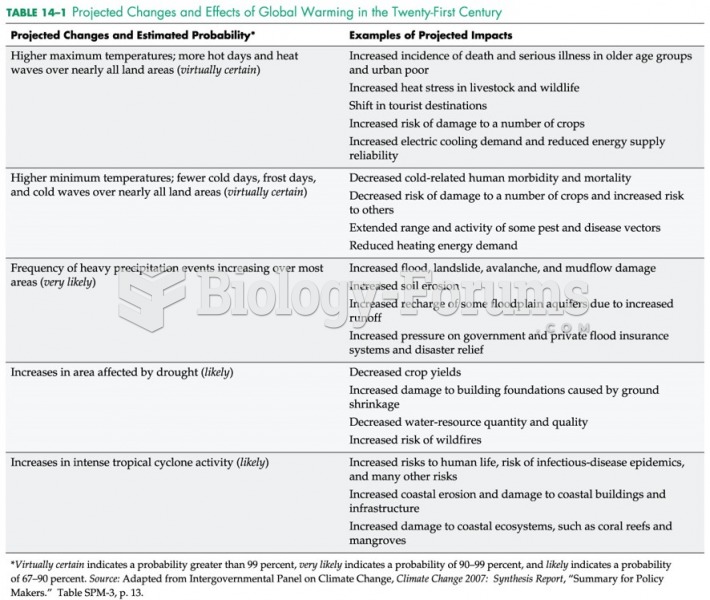|
|
|
The National Institutes of Health have supported research into acupuncture. This has shown that acupuncture significantly reduced pain associated with osteoarthritis of the knee, when used as a complement to conventional therapies.
Fewer than 10% of babies are born on their exact due dates, 50% are born within 1 week of the due date, and 90% are born within 2 weeks of the date.
Hyperthyroidism leads to an increased rate of metabolism and affects about 1% of women but only 0.1% of men. For most people, this increased metabolic rate causes the thyroid gland to become enlarged (known as a goiter).
Symptoms of kidney problems include a loss of appetite, back pain (which may be sudden and intense), chills, abdominal pain, fluid retention, nausea, the urge to urinate, vomiting, and fever.
Thyroid conditions may make getting pregnant impossible.
 Results from sequential study of two cohorts tested at three ages and at three different points in t
Results from sequential study of two cohorts tested at three ages and at three different points in t
 Using a vacuum hose and a test light to ground one cylinder at a time on a distributorless ignition ...
Using a vacuum hose and a test light to ground one cylinder at a time on a distributorless ignition ...





